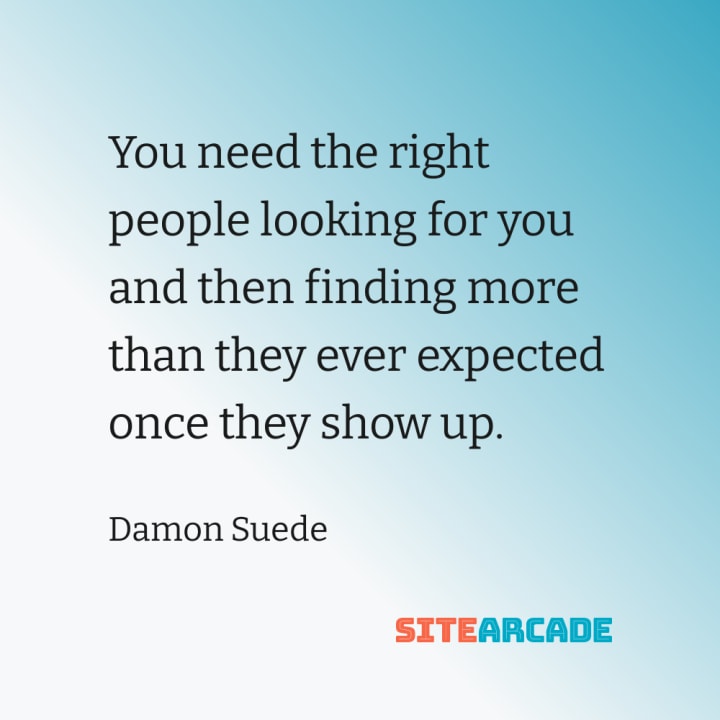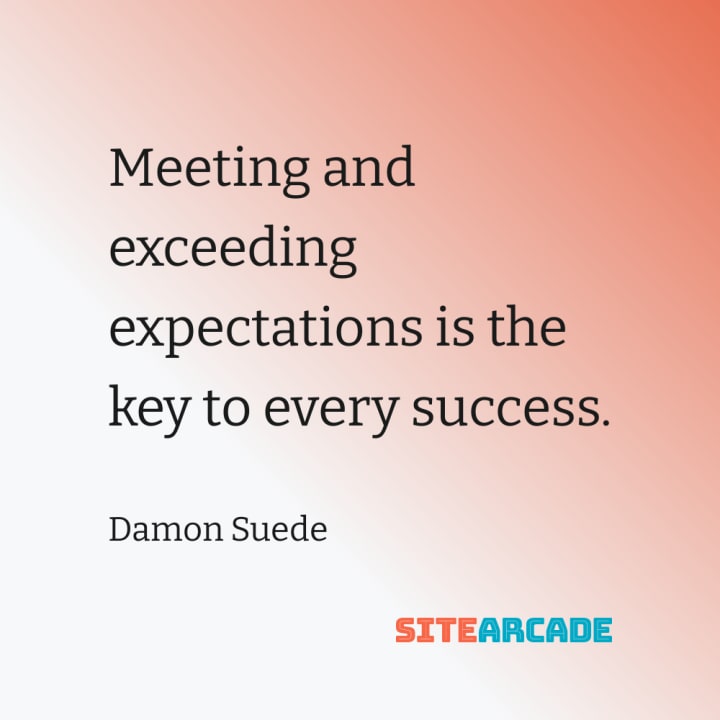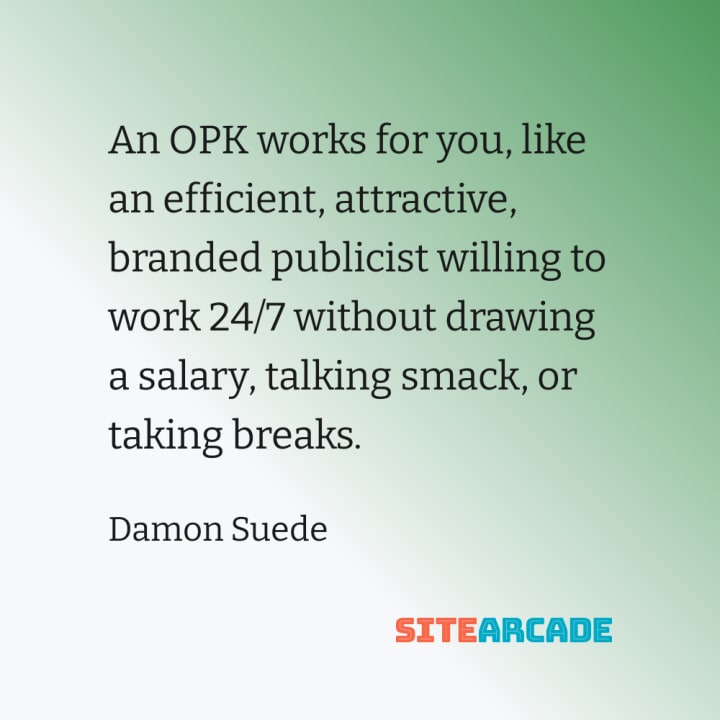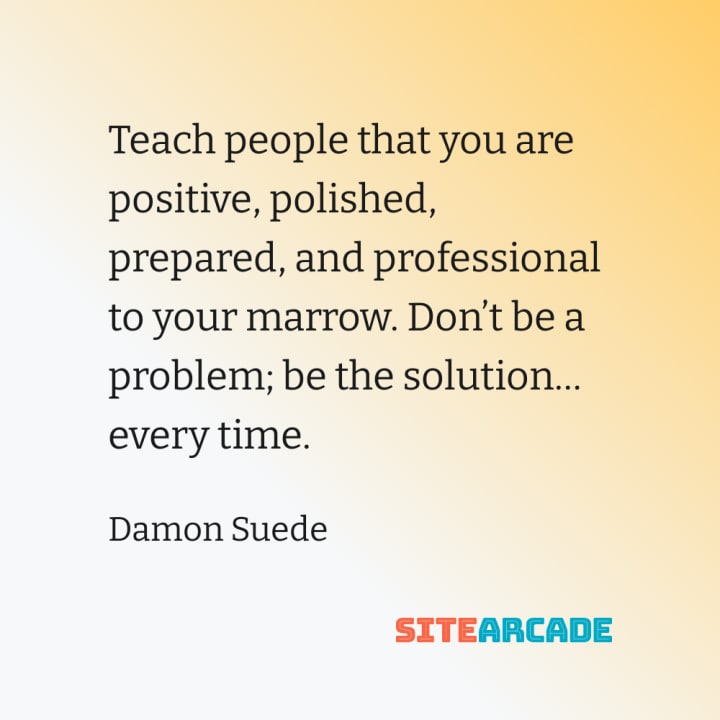How to Create A Smashing Online Press Kit
An effective author website is something of a magic trick: a hybrid of flimflam and scaffolding designed to hold attention and direct it artfully.
Every writer launches their first professional website with some obvious basics…a bare-bones setup to get the job done: a bio, a headshot, a book list (either published or planned), contact information, and maybe some social media links. With those meat and potatoes basics and a little savvy branding, anyone can slap together a site that does the minimum for their readers.
That first site is a flag planted to stake a claim within your genre’s mental real estate. And let’s be clear, solid basics can be plenty in the early stages of a writing career. Casual browsers in search of more info can get what they need from a solid, no-frills site that delivers the essentials. Ideally branding factors into the choices and layout, but not everyone goes the extra mile.
Promo should be, but rarely is, one of those basic ingredients.
Like it or not, marketing and promo are and always have been part of the gig for professional authors since the invention of commercial publishing. Charles Dickens, Agatha Christie, Jacqueline Susann, Stephen King, Nora Roberts, George R.R. Martin… every person ever paid to put pen to paper has had to figure out how to find enough eyeballs to keep themselves employed.
At a certain point, you want your author page to do more than exist; you hope it will attract new readers and (ideally) build your audience exponentially. Writers need someone to read those stories, after all.
Selling a Story is Part of Telling a Story
Which begs the question: where and how is your website promoting you at every moment it’s online? Aside from the basics, shouldn’t it cultivate the kinds of attention that build your career?
I mean…Yes, bio. Yes, book list. Yes, headshot. Okay. Sure. Fine. Great. But in the world of modern genre publishing that simply isn’t going to get anyone very far.
You need the right people looking for you and then finding more than they ever expected once they show up. You want agents and editors, reviewers and influencers, book clubs and fanzines, media and mentors to drop in and be dazzled by your insight and obsessed with your output.

You’ve got to feed these folks the meat they need, perfectly prepared, on demand at any moment. No easy task, yo.
As an author, you cannot always be available. Careers get complicated and life happens. You’ll miss phone calls. Emails get sucked into spam folders. Publication dates shift. Photographs and artwork aren’t always supplied at the right resolution or size. Keeping track of all that nitty-gritty can drive you nuts. Besides, you have writing to do!
The main function of your website is to answer all those questions in a way that rewards their interest…easy enough to do for fans, but when serving professionals on a deadline, more of a challenge.
This is why assistants and press reps can prove so invaluable to “big-name” authors: they know how to answer requests correctly and they know where everything is stored. They reinforce your brand while expanding its reach.
Herein lies the miracle of the online press kit, arguably the first thing every author website needs and the section of your site that will be tweaked and upgraded more than any other over the course of your career.
Promo Is an Essential Customer Service
An online press kit (OPK) has been standard operating procedure in corporate culture for the past 25+ years. It stands to reason: these days, the Internet is the starting point for 99% of human curiosity. The moment questions need answering, before buyers one-click, and anytime the media needs to verify anything, search engines crank into action.
Are you ready for them?
Your OPK is the key. If you seed it carefully, you can encourage little tendrils of interest and enthusiasm whenever you don’t have time to nurture them directly. Even if you aren’t a big name, you can help people help you by giving them what they need the way they need it.
Any professional looking for answers about you shows up to your site wanting to pay attention and ready to engage with your work. You can reward that urge by giving them what they want more efficiently and beautifully than they could have expected. By helping them solve their problems in advance, you’re signaling that you’re an exceptional professional who wants to ease their headaches and simplify their lives. Meeting and exceeding expectations is the key to every success.

Besides, data and navigation is what websites do best. Your author page just waits there online day-in, day-out for all and sundry to come digging. At a minimum, your site should gather and collate all the attractive, useful, positive things about your work in one place for easy retrieval by fans and colleagues. Pro-tip: it can do way more.
Fans show up wanting to browse, to investigate, to experience what you do. They want a way to access your voice, your vibe, your value. But professionals have no time to waste. They need specific facts and elements that they can incorporate in whatever work they’re doing that involves you. Party in the front, business in the back.
That press kit is where those people can find everything they need to get the job done. A dedicated OPK gives associates a single dedicated destination that never stops working. A one-stop promo shop can eliminate headaches in advance.
Do the Work for Them
How well is your website doing its job at the moment?
What would happen if a reporter needed basic factual details about your career in under 60 seconds right now? And I don’t mean random fluffy puffery for fans or jaggy cover art for your last release, but essentials organized for quick reference and retrieval. If a random stranger just-this-second googled you to find an answer to a question or to grab an image or a quote, can you guarantee they’d find what they need?
A lot of the relevant details about your work and career probably only exist in a messy patchwork across websites and documents hosted by strangers. For media types on a deadline and that curious agent interested in your latest, that won’t cut it. They don’t have time to waste.
Here’s the deal: when a reporter can’t find your headshot or an ISBN, they may not include you in that last-minute article. A frazzled producer scrounging for a headshot or a pullquote may skip you for a genre bookshelf neighbor who delivers the goods. A reviewer who doesn’t feel like verifying your main character’s name or the order of books in a series is probably going to screw those details up without bothering to check. An academic writing a thesis who can’t verify your publication dates or professional history can always feature another author with less bother. If you don’t solve their problems for them, you’re creating new ones for yourself.
Last minute is always too late. So, where’s the best place to start?
To solve a problem, you need to map its contours. Make a list of the most common questions you have been (or expect to be) asked in your career.
- What essential elements and resources form the basis of every promo effort you undertake?
- What kinds of intel do agents, editors, journos, and event organizers pester you to locate?
- What facts do professional people regularly doublecheck or get wrong?
- What images and assets, stats and facts do strangers request on the regular?
- What are the details colleagues and industry employees need to know about an author to do their job, whatever it is?
- What are the specifics that you can never remember on the fly?
Spoiler alert: most professional people looking for info about your writing may never actually take the time to read it with any degree of care. The more you can summarize and categorize for them, the more likely their ads, articles, events, and coverage will flatter you with a degree of accuracy that supports your brand and spreads your message.
Ideally, your OPK offers the one place a professional stranger would find the things they might request when prepping articles, appearances, podcasts, conferences, keynotes, interviews, offers, invitations, signings, events, gatherings, parties, launches, honors, workshops, and the like.
Help People Help You
An effective OPK gathers all your relevant details in a single convenient location for E-Z access by reviewers, media, researchers, bloggers, organizers, schools, and vendors. An OPK works for you, like an efficient, attractive, branded publicist willing to work 24/

Get practical and specific about those professional FAQs. Imagine the kinds of promo assistance and signal boosting you’d love to receive and figure out what strangers would need to provide it properly.
If anything is frequently asked, there’s a logical, legitimate reason. Some of the most common questions authors get on the regular from industry pros:
- When were you published? Titles? Genre/
subgenre? Publisher(s)? ISBNs? Buylinks? Logline? - Where can I find headshots, candid photos, artwork, logos, and other graphic assets in the resolution(s) I need with minimal fuss?
- Where can I find a long detailed 350-word bio about you? A quick 30-word bio? A professional bio? A snarky fan-focused bio? A serious academic bio?
- Do you have an agent/
manager/ publicist/ publisher/ fanclub/ charity you work with regularly? Who? Where? How do I reach them? - What is the order of books in your series? What are the character names in a specific book? What tropes/
settings/ subgenres do you flex regularly? - What awards and honors have you won? Where has your work been featured? What have respected people said about you and your work?
- Where can I find media clips of you? How can I find you on social media?
- How can I book you and what kinds of bookings are you best at?
- If you’re coming to my event, what colors, fonts, shapes, vectors, and other brand assets are associated with you, your book(s), and your related work?
- What organizations are you affiliated with? Any leadership roles or special recognition?
- Do you have a list of book/
series/ genre/ author questions or topics I can share with my book club or class? - Do you teach classes or give lectures to groups? What topics? Got reviews? What about sample handouts?
- What’s coming next? What makes you especially suited to this career?
- Where have you appeared in the past? How? When? Why? Where are you appearing next? What’s your travel schedule?
Of course, the trouble is that folks turn up looking for all kinds of answers of every stripe and you have to shape them coherently. Once you know what you can provide to help folks, you need to organize it and brush out the tangles. You don’t want that OPK to devolve into an ugly pigpile of trivia.
Happily you have one superpower that applies perfectly: you’re a writer.
If you know they’re gonna ask, get out in front of the challenge and answer them in style. Use your verbal knowhow to show them what’s remarkable about you and your work.
Find the Answers in Advance
Use your words! Sit down and write a press kit that presents an accurate, attractive face to the world. Carefully craft all these components for maximum impact in any context. And for the nonverbal elements, consult with people who have the relevant technical knowhow. Put your best foot forward, always.
Building an OPK from scratch can feel overwhelming, so take it slow and steady. Once you know the questions, make sure you answer them elegantly. Those facts and assets need to be clear, dynamic, and branded at every possible opportunity. Remember: anything will be more helpful than nothing.
Ironically, you already have most of what you need. All the information and elements exist in your files and on your website (and the greater web) already, scattered across pages and folders. Your challenge is to sift and sort that data preemptively so that even a casual browser can answer any questions as efficiently as possible.
When you’re first starting out as an author, you probably won’t have every single element in the necessary length, format, tone, and whatnot…but that’s to be expected. How do you eat an elephant? One bite at a time.
Your OPK should be the beating heart of your website and will never stop evolving alongside your career as necessary. You may not have all of the components from jump, but over time, you’ll refine sections and fill in the gaps and glitches, until your OPK is a seamless, living tapestry that tells the tale of your career for anyone looking.
Provide All the Necessary Promo Ingredients
Your online press kit will never be finished, but if you don’t have one in place already then it needs to start now.
As soon as you can make it happen, your OPK should contain:
- Author Bios written in third person and in at least three lengths: 50–75, 100–150, and 250–300 words, and also possibly options with differing tones like an academic or a teaching bio emphasizing relevant details (because each serves a different purpose, natch).
- Professional headshot with friendly, direct eye-contact that engages the viewer so that people can put a face to a name and can post/
print it alongside relevant content. (Pro-tip: no candids, no props, no pets, no costumes) - Title list of all your work (including ISBN, release date, publisher, length in word count/
pages, tagline, logline, main character names, tropes, buy links). Organize and group each series clearly. Journalists don’t have time to double-check or scrounge around when they’re on deadline. - Email, Newsletter, & Social Media Links for easy sharing, tagging, and cross-posting. Also consider building a media-specific promo newsletterthat’s strictly business.
- Images: Book covers & banners, author & series logos, author advertisements, branded memes and quotes, avatars & event artwork. All should be available in several sizes, formats, and resolutions.
- Brand Assets: assemble the font name(s), brand colors as samples as well as Hex/
RGB/ CMYK codes, logos so that folks can help brand your events, appearances, and crosspromo appropriately. - Reviews/
Quotes/ Awards/ Endorsements with links to original posts for E-Z reference - Media: videos, podcasts, clips, and any other A/
V that lets people see and hear you operating professionally. - Topics of interest and expertise for Interviews & Articles & Panels & Workshops
First, assemble all the pieces and then sort them into logical groupings and order. Situate the most requested details higher and provide convenient navigation to help anyone zip around that OPK like a boss. And remember, if you don’t have something, just let them know it’s “COMING SOON” and then keep that promise as soon as you can.
Many OPK visitors will be complete strangers, so introduce yourself! Clarify who you are as an author in the industry and where your books fit on the shelf. Let your press kit situate you in the genre-fiction landscape as accurately and attractively as possible.
Invite folks in. Make sure you’ve linked directly to your OPK from every single page of your site. Simplify tasks that you need fellow professionals to complete effectively.
Minimize the friction between the intention and the desired behavior.

Fail to Plan, Plan to Fail
Answer questions before they’re asked. Provide assets that solve problems proactively. Don’t force anyone to bug you over digital housekeeping.
You can’t always predict the precise format and size someone is after, so serve up a useful range of options; include multiple formats/
Try to sort material as logically as possible and minimize the steps needed to access the relevant content.
When sorting and culling, subpages are your friend! Once your backlist starts to build, consider creating separate book-specific OPKs for individual projects when they’re in the “hot” phase of initial launch…a simple subpage focused on each title. Limit info on that book’s OPK to the necessary details a reviewer, fan club, or journalist would want to know right now when everything is last minute. Include a calendar of launch events and giveaways for this book and encourage people to participate in the rollout and link those subpages via your main OPK. Later, this subpage will become a quick reference for folks wanting project-specific particulars beyond your primary press kit elements.
Convenience Is Critical
Your OPK can (and probably will) start small. Assemble the obvious elements you have on hand and then refine and expand that offering as you’re able. Even a rudimentary presskit will be more helpful than forcing strangers to scrounge around the entire web for the necessary bio, links, or banner art. Plenty of people simply won’t bother.
Attention is rare and precious, so pay attention to what matters. You should pay attention so they don’t have to, because most people won’t.
At core, an OPK corrals all the bits and bobs to answer common questions and relevant topics in a single location guarantees that the info will flow. By pre-selecting and carefully sorting all the relevant details in a clean, efficient, organized location you short-circuit problems before they occur.
Remember: an up-to-date OPK helps the industry help you. Solve problems before they happen!
Your goal is to be the author everyone knows will get the job done, even in crisis. Teach people that you are positive, polished, prepared, and professional to your marrow. Don’t be a problem; be the solution…every time.

I link to my presskit in all correspondence with organizers, publicists, journalists, media, and groups. That way even if they don’t know they need something, they know where to go looking. I can’t count the number of times I’ve said to a publicist, “It’s on my press kit. I included the link in my email,” when I’m stuck in transit or under a deadline.”
Again, the goal is to make things logical, attractive, and easy to find. Make sure your OPK is linked clearly from every single page of your website. Keep building, editing, expanding, and grooming what it offers. Your OPK will never be complete because you’ll always be upgrading and improving ways it connects you to the world.
As Seneca once said, “Luck is where opportunity meets preparation.”
Make Yourself Luckier
You never know who’s wandering through your OPK at the odd moment.
I have had journalists build entire articles entirely from my press kit without any involvement from me and only found out when the content went live. I’ve booked TV and radio gigs because producers were scrambling to find media-trained authors for a last-minute broadcast. I have signed gigs, won contracts, joined events, corrected the record, helped colleagues, quashed nonsense, and launched projects because the right person ran across my OPK at the right moment. Hell, I use my own OPK when sitting on panels or during interviews for the moments I can’t dredge up a simple fact off the cuff.
My OPK saves my behonkus almost every day in ways I can barely comprehend. It solves headaches and saves deadlines for folks I’ll never meet. It’s always on duty and getting things done on my behalf. I can’t overstate its impact.
I always compare a press kit to a fussy Persian cat stroked by a million, iffy strangers. If you brush it every day, feed it right, and pet it regularly it purrs in everyone’s lap, glossy and gorgeous. Leave it too long or neglect its care and feeding, things will get snarled and snagged and stanky. Never stop grooming and improving what visitors find every time they swing by. Every time they interact with you, they should enjoy the experience if you want them to come back.
Find fresh ways to deliver more of what folks need in ways they didn’t expect. As your career shifts, your press kit should follow suit. Clean up clutter and keep things juicy in there. Update that OPK with new events, reviews, awards, images, and quotes as they come in. Any gaps will vanish and over time, that one page of your website will map every square inch of your career and carve a path forward.
The more you help folks help you, the faster they can get to work boosting your career.